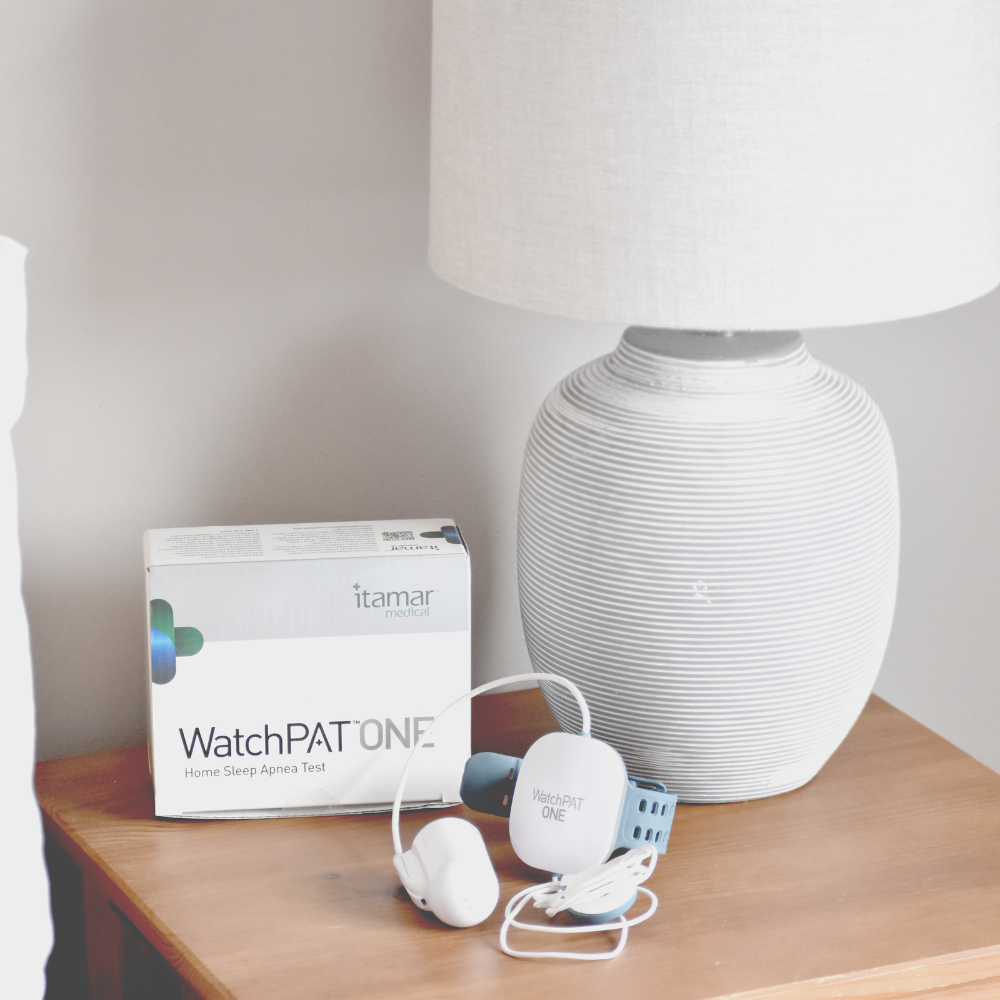Fact Checked
Intus Healthcare’s writers, customer service team, and sleep experts review and ensure this information is accurate.
Last updated on March 28th, 2025 at 01:45 pm
Sleep is essential for maintaining good physical and mental health. Most adults need to sleep for the recommended 7 to 9 hours each night to allow the body and mind to recover from the events and stresses of the day.
Many factors can affect the ability to fall asleep and impact the quality of rest, including anxiety, too much screen time before bed, and the foods we eat.
Not getting enough sleep can also impact the development of sleep disorders such as Obstructive Sleep Apnoea (OSA) and Insomnia.
For those with a disorder like OSA, it is essential to consider the foods consumed before sleeping. This article provides information about the foods that can help you sleep and those you should avoid.
Table of Contents
What are the best foods to help you sleep?
If you fancy a late snack, try not to reach for the most tempting treat to hand, as it will likely disrupt your sleep. Keeping stocked up with protein-based foods can not only help satisfy your late-evening cravings but also help you fall asleep.
Some of the best foods that promote sleep contain essential vitamins and minerals such as magnesium, tryptophan and calcium.
Calcium-enriched foods for sleep
A lack of calcium can make you wake up at night. Dairy products contain calcium and tryptophan, which are significant sleep inducers and benefit those with sleep disorders.
Here are some foods high in calcium:
- Seeds
- Broccoli
- Low-fat yoghurt
- Low-fat milk
- Plant-based milk – Almond, pea, and flaxseed milk contains more calcium than cow milk
- Sardines
- Soybeans and lentils
- Cottage cheese
Tryptophan foods for sleep
Tryptophan is an amino acid in several foods, such as complex carbohydrates, eggs and fish. Tryptophan helps promote drowsiness by boosting serotonin levels, a naturally occurring substance that influences sleep. Serotonin is excellent for mood, making you happier and reducing the risk of depression and sleep disorders. It also increases levels of the hormone melatonin the body creates, positively impacting your sleep-wake cycle.
Nuts are a good, healthy snack option at the best of times, but they can also help you fall asleep. Almonds and walnuts are delicious as a late snack option since the calcium they contain converts the body’s tryptophan into melatonin, helping to signal to the body it is time to fall asleep.
Here are some foods high in tryptophan:
- Seafood
- Eggs
- Nuts
- Vegetables
- Grains
- Low-fat dairy
- Cottage cheese
- Turkey and chicken
- Chickpeas
- Cherries
- Honey
Eat any of these with whole-grain bread as it retains the grain’s germ, which has vitamins that aid the absorption of tryptophan. It also contains magnesium, which helps relax your muscles.
Magnesium-rich foods for sleep
Magnesium is a sleep mineral, a natural relaxant that helps deactivate adrenaline, allowing you to fall asleep quicker and for longer.
Foods high in magnesium:
- Bananas
- Avocados
- Salmon
- Mackerel
- Tuna
- Almonds, cashews and pumpkin seeds
- Low-fat yoghurt
- Soy and soy milk
What foods keep you awake at night?
Our food and drink can significantly affect our sleeping patterns and daily life. So, it stands to reason that there would also be foods which can prevent you from getting a good night’s sleep. These are the foods to avoid if you want to improve your sleep:
Caffeinated foods and drinks
Many of our favourite foods include caffeine, which keep you awake at night and prevents your body from relaxing and winding down. You should eliminate caffeinated foods and drinks 4-6 hours before bedtime. Foods containing caffeine:
- Chocolate
- Coffee & Tea
- Energy and fizzy drinks
- Some medications (pain relievers, weight loss pills and cold medicines) – Check the label, as some medications can include as much caffeine as a cup of coffee.
Many caffeinated foods and drinks are also high in sugars, increasing your insulin levels and the stress hormone cortisol, making sleeping difficult.
Spicy foods
Spicy food can keep you awake at night because it can cause indigestion, heartburn, and acid reflux. Many spicy foods contain high levels of capsaicin, a chemical that elevates your body temperature. The temperature rise in your body from spicy foods interferes with the body’s thermoregulation process, making it harder to fall asleep. Spicy foods may include:
- Curries
- Hot sauce
- Mustard
High Glycaemic Index foods
These foods rapidly increase blood sugar, making it harder to fall asleep. This includes:
- White rice
- White bread
- Fries
- Potatoes
- Noodles
Fatty foods
These foods can affect the quality of your sleep, overwhelming your digestive system before bed. A late-night slice of pizza can be very tempting but is better left alone if you want a peaceful night. Many of these foods also contain high salt, dehydrating your body; they should be avoided 2-3 hours before sleep. Fatty foods include:
- Fried chicken
- Pizza
- Fatty meals
Alcohol
It is not recommended to drink alcohol as a sleep aid. While alcohol can initially help you fall asleep faster, it can disrupt your sleep later in the night and lead to more disturbed sleep.
Meal Timings
- Regular Meal Times: Establishing regular meal times helps regulate your body’s internal clock, which can in turn improve your sleep patterns. Irregular eating patterns or skipping meals may disrupt your circadian rhythm.
- Late-Night Eating: Eating a heavy meal or snacks right before bedtime can lead to discomfort and indigestion, interfering with sleep. Opt for a light, easily digestible snack if you’re hungry before bed.
It is important to note that staying hydrated is essential for overall health, but consuming large amounts of fluids close to bedtime can lead to nighttime awakenings to use the bathroom. Reducing your fluid intake in the hours before bedtime is a good practice.
Related article: What is Sleep Hygiene and why is it important?

Home Sleep Apnoea Test
The test monitors your heart rate, snoring intensity, blood oxygen levels, body positioning, and more, providing accuracy comparable to testing used in sleep clinics for in-depth sleep analysis.
The simple-to-use test takes just one night to complete, and results are returned within two working days after completion.
Our experienced NHS-qualified sleep professionals independently analyse all studies, providing follow-up advice and support.
How much does diet affect sleep?
While it is widely acknowledged that drinking caffeine and alcohol before bed should be avoided, some foods may help you fall asleep. Many foods contain chemicals, nutrients, and other compounds to help control your sleep cycle. Your sleep cycle helps your body restore and recover from the day, so you wake up alert.
Certain foods contain elements that help you relax. The drowsiness helps you to fall asleep quicker and remain asleep, too. Switching to certain foods and drinks can help you gain more quality, restorative sleep.
It is also recommended to avoid drinking too much before you sleep to prevent waking up and needing to use the toilet. However, caffeine-free tea is a good option if you need a drink before bed. There are many styles of tea readily available to buy these days. Chamomile, ginger, or peppermint teas offer a calming late-evening drink. Valerian tea is another option; valerian is a herb with a mild sedative, helping to improve your sleep and reduce stress.
Summary
In summary, the connection between sleep and food is multifaceted, and what you eat and when you eat can influence your sleep quality. To promote healthy sleep habits:
- Maintain a regular meal schedule.
- Choose foods that promote better sleep and avoid heavy or stimulating meals close to bedtime.
- Be mindful of your caffeine and alcohol consumption.
- Stay hydrated, but moderate fluid intake before bedtime.
- If you have specific dietary concerns or sleep issues, consider consulting a healthcare professional or a registered dietitian who can provide personalised guidance.
For those who suffer from sleep disorders such as Obstructive Sleep Apnoea, choosing the right snacks to promote drowsiness can complement their treatment (such as CPAP therapy).
While you do not want to go to bed on an empty stomach, you shouldn’t overeat – even if you consume foods promoting sleepiness. The larger the meal or snack, the harder the body needs to work to digest it – and the less rest you will ultimately achieve.
If you think you have OSA and have symptoms, take our Free Online Sleep Apnoea Risk Test and find out in 20 seconds if you are at risk of having Sleep Apnoea.
Contact us if you need any help or advice.
About Our Editorial Team
Danni is a degree-educated content writer passionate about helping those with Sleep Apnoea sleep better; she works closely with our clinical and customer care teams to ensure that each article is thoroughly researched and accurate.
Her writing aims to inform, support, and advise readers about Sleep Apnoea, helping to raise awareness and promote effective treatment options.
She has written many health-focused articles, reaching hundreds of readers annually, to help people sleep better and live healthier lives.
Lateisha King is an experienced Sleep Clinician with advanced training in polysomnography and respiratory health.
With over six years of experience, including at the prestigious Guy’s and St Thomas’ NHS Foundation Trust Hospital, she has conducted and reviewed more than 500 diagnostic sleep studies.
Her expertise in sleep science ensures that all articles align with the latest data and treatment protocols, providing readers with trustworthy and practical advice to improve their sleep health and overall well-being.





